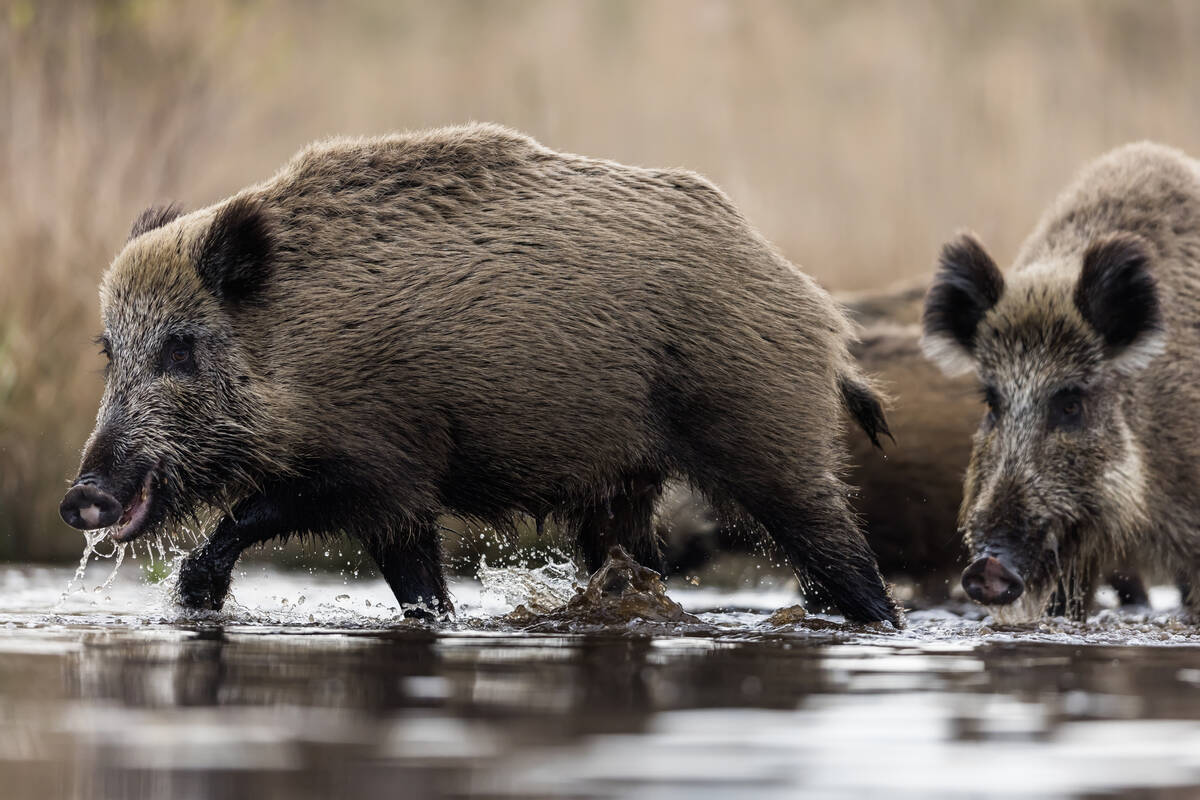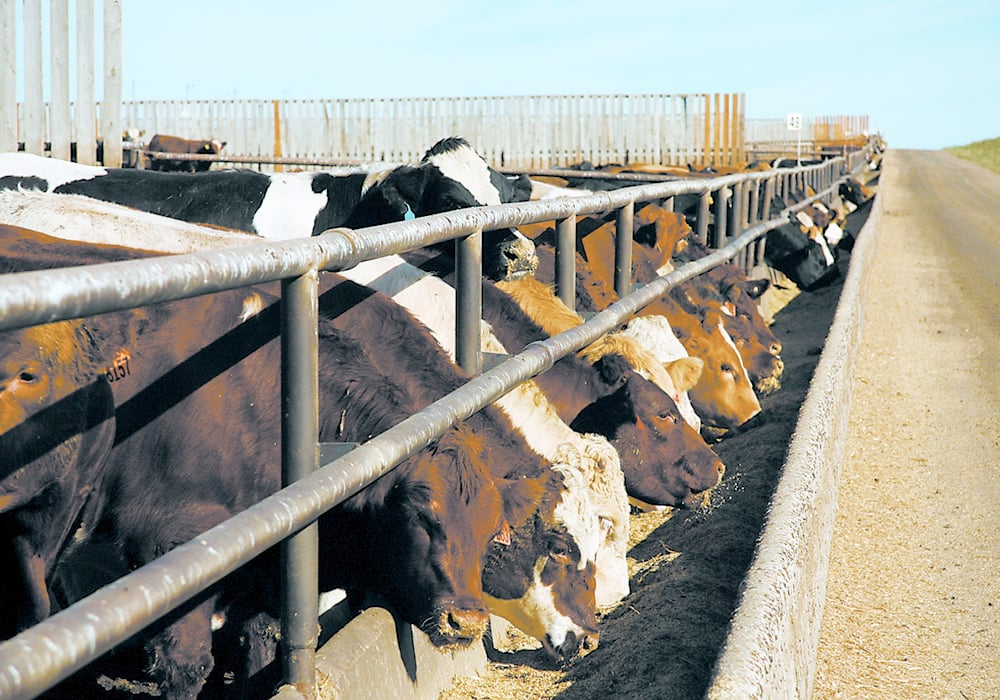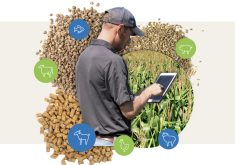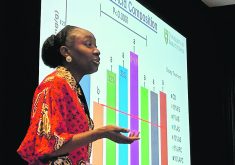WINNIPEG — Livestock feeding is facing more sticks and fewer carrots these days, says the executive director of the Animal Nutrition Association of Canada.
The widespread perception that cattle and other farm animals cause climate change and antimicrobial resistance problems has led to a hardening of government’s approach to the industry.
“They look at livestock and they see pollution,” Melissa Dumont said at the Animal Nutrition Conference of Canada.
Read Also

Manitoba bans wild boar possession
Manitoba has tightened the regulatory status of Eurasian wild boar in an effort to help fight back against invasive wild pigs.
“We look at livestock and our industry and we see solutions.”
Dumont said there are still a number of incentive-based programs to promote various government priorities, but tougher rules and regulations governing feed and livestock production have also been introduced, with more likely.
“We are now starting to see the stick approach with government,” said Dumont.
Many grumble about the federal carbon tax, which has been in place for years, but there is now talk of a federal plastics registry, in which all industries will be required to document their use and disposal of plastic products.
Feed bag recycling is developing in Quebec and spreading across the country. Dumont said federal and other provincial bag recycling programs are “probably coming down.”
Antimicrobial resistance rules are getting firmer, but the feed industry is frustrated by red tape that stops nutritionists and formulators from using feed additives that are available in the United States and Europe.
“We need the right (regulatory system) and policies in place to allow the feed industry to innovate,” said Dumont.
















